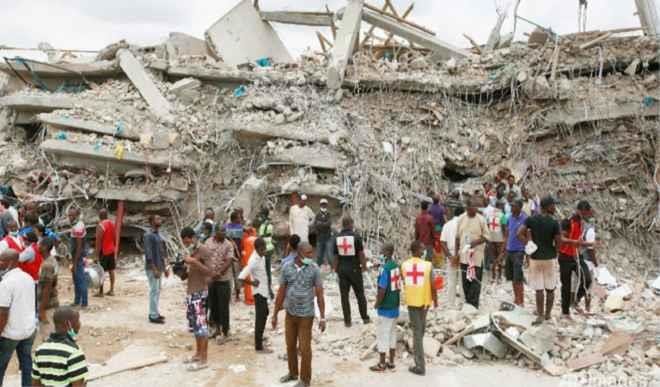Tackling causes of frequent building collapse
A building that is properly constructed is expected to be in use for a very long time. The rampant cases of buildings collapsing in various locations across the country have posed a great challenge to government and professionals in the built environment in view of the enormous loss of huge investments in housing and attendant […]


A building that is properly constructed is expected to be in use for a very long time. The rampant cases of buildings collapsing in various locations across the country have posed a great challenge to government and professionals in the built environment in view of the enormous loss of huge investments in housing and attendant loss of lives.
Professionals have attributed building collapse to non engagement of professionals and sharp practices such as use of substandard materials.
Although some professional bodies are charged with the accreditation of building professionals as well as regulating their practice, little has been achieved to avert the regular cases of building collapse.
Regulatory bodies like the Architects Registration Council of Nigeria (ARCON), the Council for the Regulation of Engineering in Nigeria (COREN), the Council of Registered Builders of Nigeria (CORBON) and also the Quantity Surveyors Registration Board of Nigeria (QSRBN), are some of the professional regulatory bodies saddled with the responsibilities of ensuring professionalism and ethical standard in the construction industry.
These professional regulatory bodies have spoken at different forays on why they couldn’t do much in averting cases of building collapse.
The Council for the Regulation of Engineering in Nigeria (COREN) recently decried the increase rate of building collapse in the country and suggested new legislations to deal with cases of negligence on the part of developers and quacks who fail to use professionals in the execution of projects.
COREN president Kashim Ali said that investigations carried out on the collapsed buildings showed that improper designs, poor quality materials and improper site practices were the major causes.
He said that where professional engineers were found to have been involved, the COREN tribunal has enforced necessary disciplinary measures.
Also the Nigerian Society of Engineers (NSE) and Association of Professional Bodies of Nigeria (APBN) called for the conduction of integrity tests on all buildings suspected to be substandard across the country to find a lasting solution to incessant cases of building collapse in the country.
The bodies also canvassed for the enforcement of standards in the building industry, including engagement and training of indigenous qualified engineers in order to check the menace.
National President of NSE Otis Anyaeji said most of the buildings that collapsed after construction were handled by quacks.
Chairman of Association of Professional Bodies of Nigeria (APBN), Dr C.A. Ezeagu said government has not lived up to expectations by monitoring standard of buildings being erected in the country.
He insisted that every contractor must indicate through a visual sign, who the clients of every building are, to enable government know who to hold responsible incase of failure.
Similarly, the Nigerian Institute of Architects called for tough sanctions against those found wanting in any cases of building collapse.
Director, Archibuilt Development Services Limited, Umaru Karaye said poor building designs, unqualified contractors as well as use of substandard building materials are major causes of building collapse.
Karaye also said that as a measure to curb building collapse, the institute has decided to deny producers of substandard building materials access to exhibit their products during the 2017 Archibuilt exhibition.
He condemned situations where reports of investigations conducted on collapsed building are not made public.
“All these years we have been hearing, we hardly know the outcome of the investigations and the sanctions,” he added.
In view of this, the National Council on Housing and Urban Development instituted the process of evolving a National Building Code (NBC) which sought to proffer solutions to the hazardous trends in the building construction industry. The code is to provide the minimum standards for building pre-design, design, construction and post-construction with a view to ensuring quality, safety and proficiency in the building industry. The code was slated to be reviewed after every 3 years in order not to render the code obsolete.
Various states across the country failed to domesticate the legislation in their states rendering the code dormant. More so, there is no evidence that the expected periodic review of the NBC was done.
It has always been a blame game whenever a building collapses in Nigeria and those at fault always shrouded in mystery as nobody wants to take responsibility.
However be it as it may be, experts have been unanimous in calling on government at all levels to ensure standards in construction works through adequate monitoring using the state department of development control.
